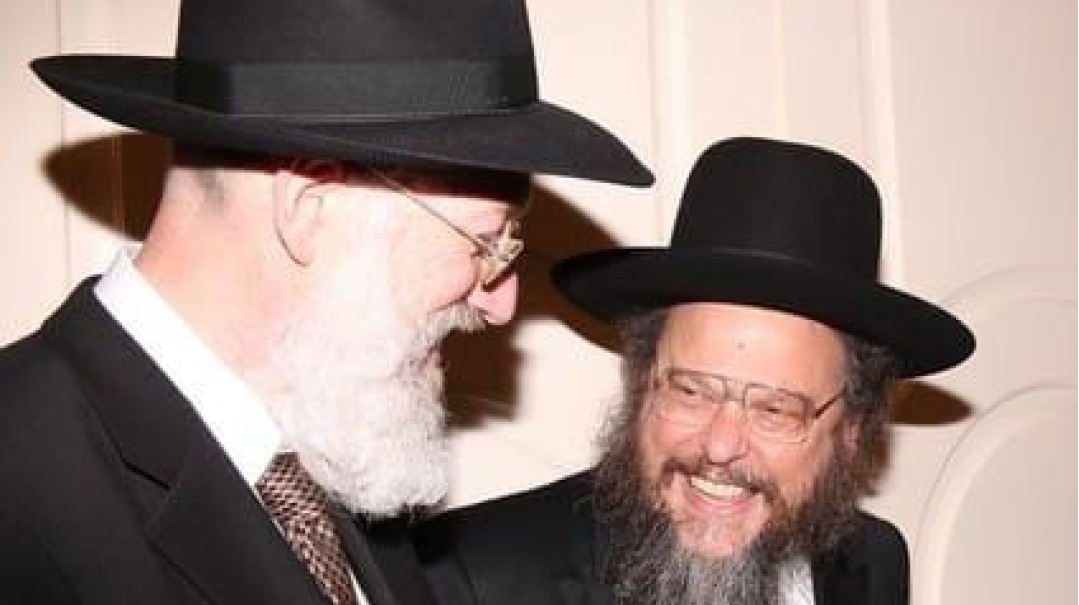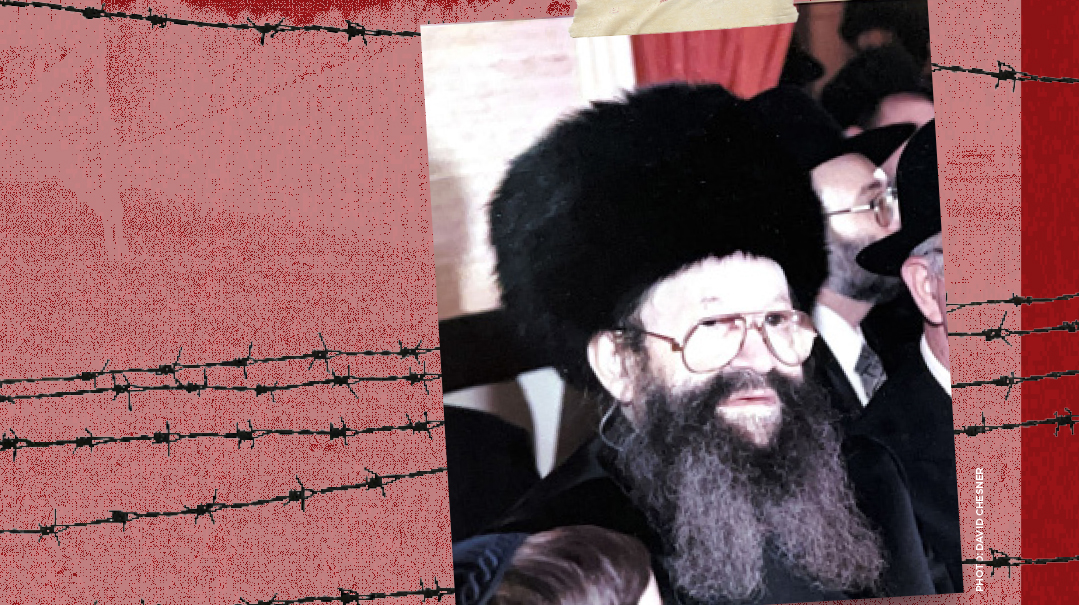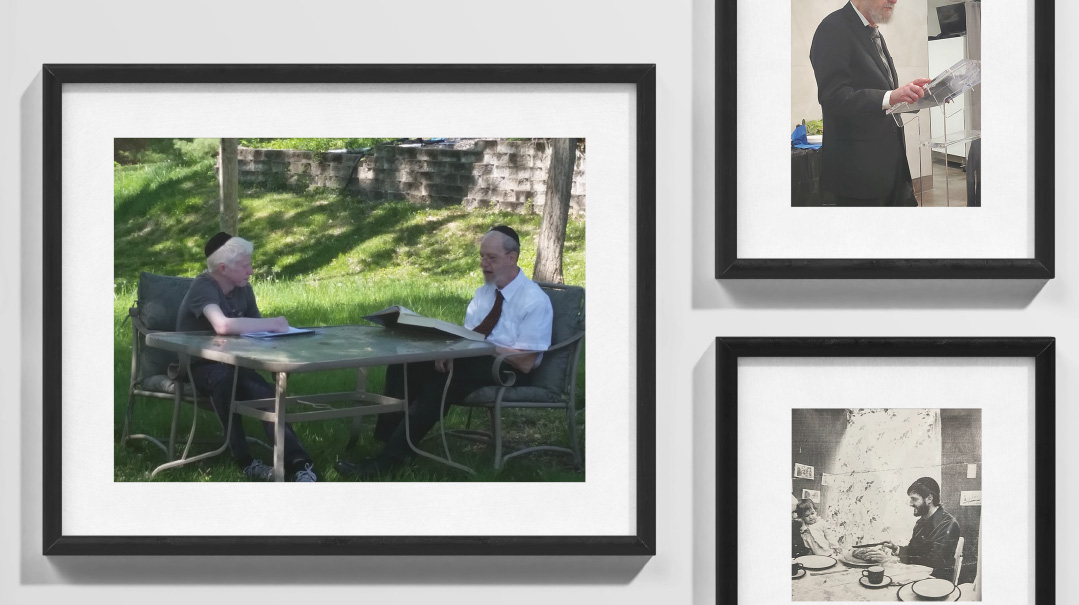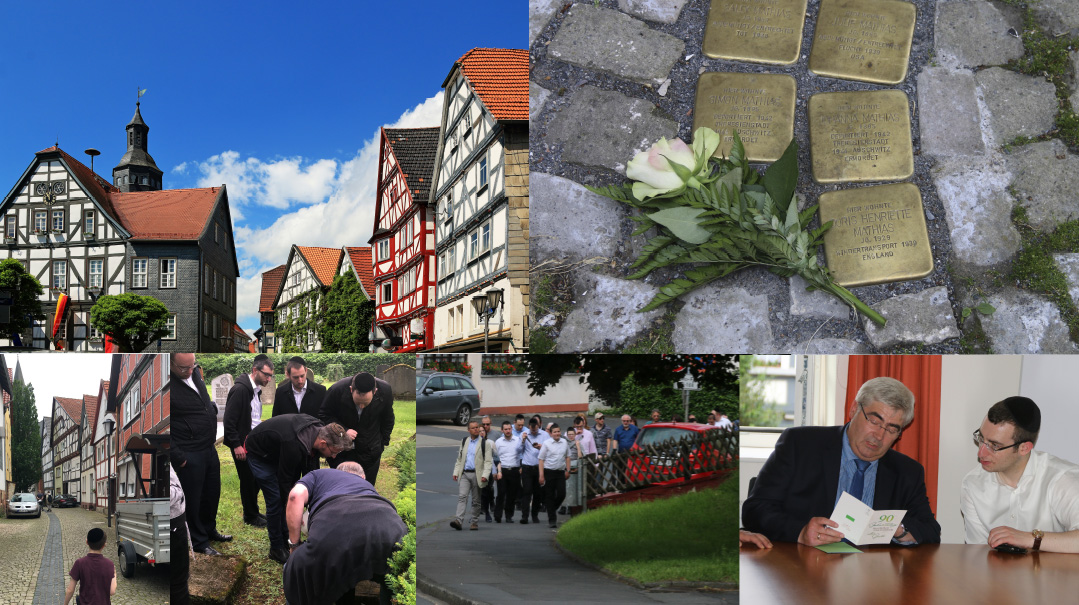Sands of Time

They learned with an intensity; they flew in the heavens above the desert. And finally Chaim knew why he had to come on the trip
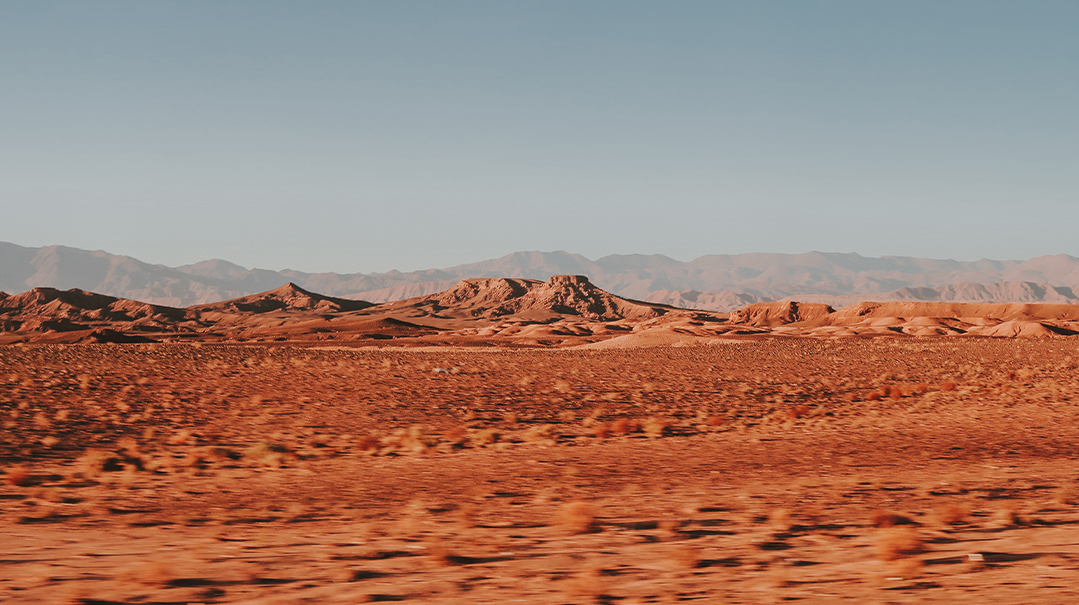
As told to Rivka Streicher
You don’t get to choose your neighbors, which is just as well. Chaim, a chassidish rosh yeshivah, and Ilan, a Moroccan businessman, traditional but not strictly religious, would never have become the close friends they are if G-d hadn’t put them next door to each other in Jerusalem.
On their adjacent porches, they’ve spent many a Shabbos together, singing, fabrenging, talking of their respective heritages.
Chaim’s ancestry is mainly Polish. Ilan’s winds its way through Africa. His extended family still lives in Morocco, comfortably and largely, but he’d come to Eretz Yisrael because he wanted to give his children something else.
Staunch Sephardi that he is, Ilan would make an annual trip to the gravesite of Rabbi Yaakov Abuchatzeira on his hilula. One time, a couple of days before he left for Casablanca, he knocked on his neighbor’s door.
“Chaim, this year you’ve got to come.”
And Rabbi Yaakov Abuchatzeira is buried in the middle of the Sahara Desert, in the Egyptian Nile Delta city of Damanhour. A dearly wished-for trip to the Holy Land cost him his life in 1879 when he grew ill on the journey through the desert and died.
Chaim had heard enough about it to know this was an experience he didn’t want to miss.
“Let’s see if I can make it,” Chaim said, and at the last minute he was able to.
He was busy with yeshivah-related matters on the way to the airport and didn’t think anything of it when Ilan said, “Leave it all to me, the itinerary, lodgings, food.”
They arrived in Casablanca, where they were going to stay the night with Ilan’s relatives before driving ten hours to the desert gravesite. The relatives’ home lay on sprawling grounds, and Chaim got a sense of what Ilan had given up when he realized that each room had its own servant and his bathroom was cleaned and freshened every hour. He came downstairs to the smell of tantalizing foods, and found a slew of Arabian servants whipping up delicacies for dinner. He saw them turn on the flame, turn on the oven — and Chaim realized he couldn’t eat this food.
It was late noon, the men of the house were going to daven Minchah and he didn’t have time to slip out to see what he could buy. The chauffer drove them to and from the synagogue, and he peered out the window looking for kosher shops. He couldn’t ask anyone, and in any case, how would it look for him to turn up with shopping bags when in the host’s home a feast had been prepared? He knew he couldn’t affront them like that, and so, in the ornate synagogue, he prayed.
All his life he’d been incredibly careful about hechsherim. He was weary from the journey, and already rather hungry. As he was davening, he remembered two things: He could eat fruit and vegetables and anything uncooked, and that alcohol takes the edge off hunger.
As it happened when they came in again, the woman of the house called them into the kitchen to say amen to the brachah on the bread she was baking for the dinner. Hafrashas challah, go figure, Chaim thought, but he watched as she preheated the oven — this was clearly her job, start to finish, so he could eat the bread.
When they sat down to dinner, he ate slice after slice of bread, and then claimed to be too stuffed to try anything else.
They passed around Moroccan arak, a fig-based drink, strong stuff. He took one drink, and then another. They loved that an Ashkenazi enjoyed their drink.
Dawn rose on the day of the trip into the desert. The family packed meats and fish, entire meals, into the car.
“Food for the journey and food for Shabbat,” they said.
How would he do Shabbat? But more pressing, ten hours in the car with no food he could eat.
A few miles out they pulled out a meaty breakfast. Chaim thought quickly. “In our chassidus, there’s a minhag to fast on Thursday during shovavim.”
“Ooh, a minhag, what a zechus. Are you sure you have to, even when traveling?”
“Yes, I’m sure,” he said.
Snow had fallen in the Sahara. The sand glittered white in the sun. An eagle spread its wings and took flight. Once, Ilan had tried to describe the desert for Chaim, but seeing it for real, its dunes dressed in winter, was everything described and more.
They made a couple of short rest stops on the way and in one place there was a primitive marketplace. Soon, night would fall and his fast would end; he needed something to break his fast on. He bought as many bananas as he could carry, and told them that after fasting he couldn’t stomach anything else.
They arrived at the ancient gravesite after nightfall. He was sapped from a jostling journey over hills and valleys, from a self-proclaimed fast and a few bananas. His eyes blurred. Lights strobed the night. In front of the grave of the ancient sage, voices of merriment rang out, music, dancing, men and women swirling together. He stood there, a chassid, a rosh yeshivah; he’d come out hundreds of miles, left his family for Shabbos, he couldn’t eat — and now this? He stumbled to bed in an opulent apartment owned by Ilan’s relatives, for use just once a year.
He woke up on Erev Shabbos, heard the swell of the crowds, smelled the food they were warming for Shabbos. His head hurt, he felt weary all over. But he was a person of spirit; if he was here, he resolved to make the most of the experience. He’d seen eagles and desert animals; he could breathe the history in this desert city. He’d make it worthwhile. If he couldn’t eat, he would keep drinking.
On Friday, as Ilan’s family feasted, Chaim ate his weight in fruits that did little to fill him, and he drank the arak they passed around.
He found a quiet moment to pray at the kever. He even found an Erev Shabbos mikveh, a hole in the ground, the water frozen over. With a good quantity of arak in his system, he hardly felt the cold as he slipped into the water.
Somehow he made it through Friday night. He scrounged for any raw food and he drank. Ilan’s family and their tens of guest kept making l’chayims with him. He was starting to get something of a name, the chassid who drank more than the Sephardim.
Shabbos morning, they took him to the home of one of the wealthiest men. Crowds of guests were seated at numerous tables but the magnate sat at a table for one, presiding over the affair. When Chaim came in with Ilan’s family, the rich man called him over to sit with him. “They say you understand,” he said, and he proceeded to pour him from the most expensive and extravagant whiskeys.
By this point it was ad d’lo yada. Chaim could handle alcohol, but this was on a virtually empty stomach. He was in a haze, weak, and floaty, and he didn’t know how he’d make it through the rest of Shabbos.
An older man tapped him on the shoulder. “I see you’re not eating, neither am I.”
A small person, a giant in Torah. They sat in a corner, while people ate and made merry around them, and they got to talking, Torah, dveikus. Those were, Chaim said, maybe the sweetest hours of his life, learning, connecting, transcending everything that was taking place.
They learned with an intensity; they flew in the heavens above the desert. And finally Chaim knew why he had to come on the trip.
He lasted by continuing to drink to stave his hunger. On Sunday they drove the ten hours back through the desert, and he drank even then. Ilan and his family were flabbergasted.
“No one drinks on the way back!”
But Chaim was beyond reason, beyond hunger; when the plane landed back in Israel, he could hardly be roused from his deep slumber to disembark.
“So,” he says when he finishes the story, “What did I get from this Shabbos? I saw many things I wouldn’t have otherwise. The brutal beauty of the desert, Moroccan culture, the pride they take in their food. I saw people who don’t know a better way, but who still cling to rabbanim, who have a true kevod rabbanim. All of these things drifted into my consciousness, even with the arak. And maybe I had to get to this matzav of ad d’lo yada in the middle of Shabbos to be able to know that this quiet man had so much inside of him. That he would be able to talk to my soul. Even when you don’t know, you know. Because you don’t know, you know.
“And that’s what Purim is. You drink until you don’t know anything else. And then you know.”
He’s deeply serious for a moment, and then he laughs. “So, you want to hear what happened the next year? I got Ilan back big-time. I took him to Poland for the yahrtzeit of my Rebbe….”
(Originally featured in Mishpacha, Issue 850)
Oops! We could not locate your form.








